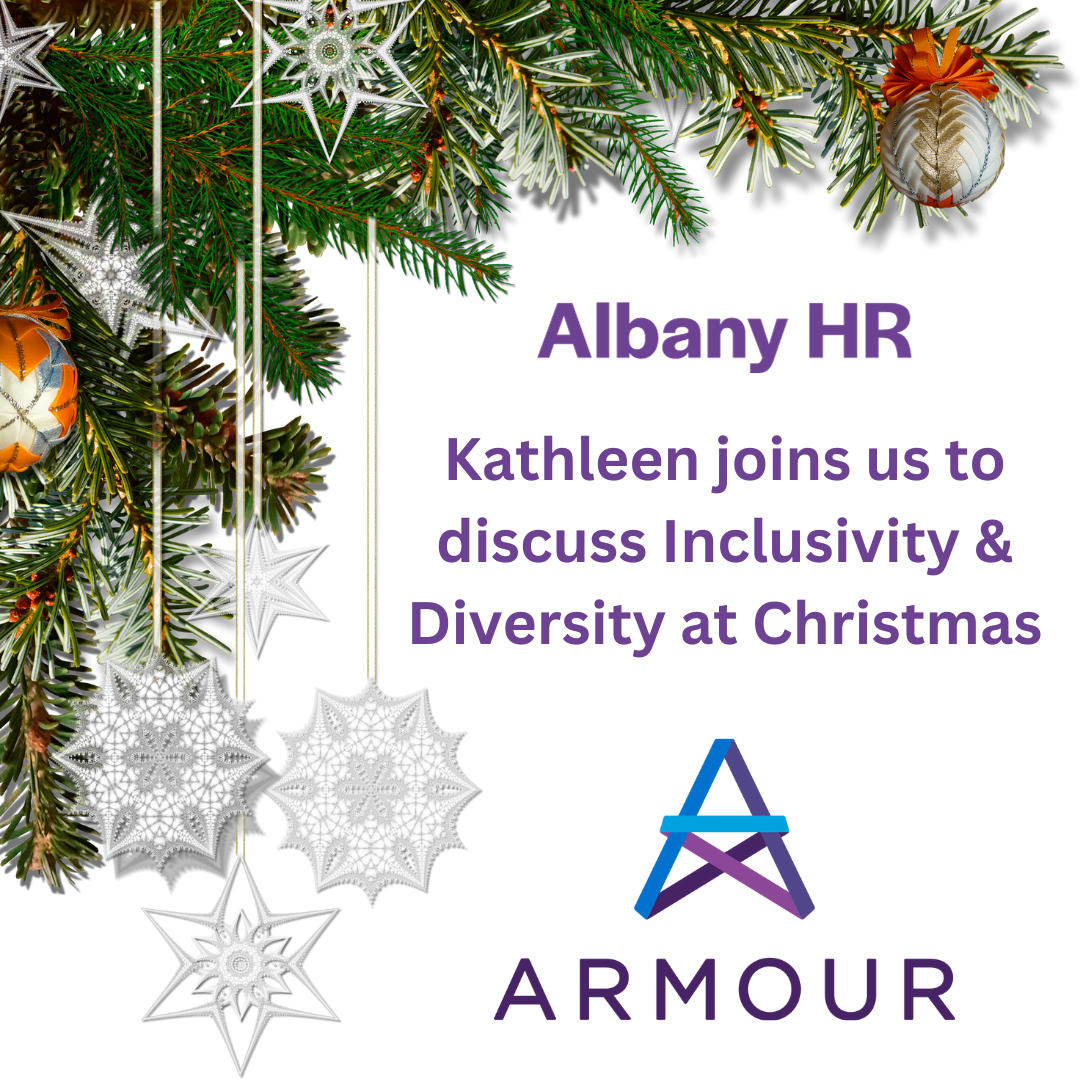Navigating the Festive Season: Diversity and Inclusion at Christmas

For many of us, the festive season is a time for celebration, joy, and togetherness. However, it can also be a time of stress and anxiety for some, and for others it’s just another day. For employers, it is important to be mindful of the diversity of their workforce and to take steps to create an inclusive environment for everyone.
But first of all – what do we mean by diversity and inclusion?
Diversity is the characteristics, experiences and other distinctions that make one person different from another. To remind you, protected characteristics include age, disability, gender reassignment, marriage and civil partnership, pregnancy and maternity, race, religion or belief, sex, and sexual orientation.
Inclusion is all about creating an environment where everyone, regardless of obvious or less visible level differences, feels welcome and valued.
Here are a few things for you to consider:
Religious and Cultural Diversity
Christmas is a Christian holiday although enjoyed by many people of other faiths. However, it’s important to be respectful of all religions and cultures and remember some employees may not celebrate Christmas due to their beliefs, and other holidays may be more important to them.
You can be inclusive by providing non-alcoholic options at work events, being considerate in the catering, and offering flexible working hours to accommodate employees who need to attend religious services. Why not find out what different traditions/food/games there are around Christmas and incorporate these into any events you plan?
Diversity of Family Structures
Not everyone has a traditional family structure. Employers should be mindful of this and avoid making assumptions about people’s families. For example, employers could avoid sending out Christmas cards that only depict traditional families, and instead opt for cards that are more inclusive.
Good Mental Health
The festive season can be a difficult time for people with mental health issues. Employers should be aware of the signs of mental health problems and offer support to employees who need it. Not everyone will have happy memories of previous Christmases and want to celebrate. Employers could provide information about mental health charities or offer training to managers on how to spot the signs of mental distress. Take special care to ask after your employees at Christmas.
Physical Limitations
Some employees may have physical limitations that make it difficult for them to participate in traditional Christmas activities. Employers should be accommodating of these limitations and offer alternative activities. For example, employers could host a virtual Christmas party or provide a quiet space for employees who need to take breaks from the festivities.
Financial Wellbeing
Christmas can be a time when many people feel that they have to spend money that they don’t really have. Employers should be mindful of this and avoid putting undue financial pressure on their employees. For example, employers could avoid hosting expensive or mandatory Christmas parties.
Communication
It’s important to communicate openly and honestly with employees about diversity and inclusion at Christmas time. This could involve sending out a memo or newsletter outlining the company’s policy on diversity and inclusion or making sure it’s a topic of conversation in team meetings. If you have planning committee for an employee event being organised, make sure diversity and inclusion is on the agenda for consideration. And remember to ask for feedback!
By taking these steps, employers can create a more inclusive and welcoming environment for all employees at Christmas time.
Additional Tips
- Educate your employees about diversity and inclusion. This could involve providing training or holding workshops.
- Create an employee resource group (ERG) for diversity and inclusion. An ERG can provide a safe space for employees to discuss their experiences and provide support to each other.
- Celebrate different cultures and traditions. This could involve hosting a lunch where people bring their favourite foods or organizing a cultural awareness event.
- Be mindful of your language. Avoid using language that could be considered offensive or is insensitive.
- Make sure your workplace is physically accessible to everyone. This includes things like providing ramps and lifts and ensuring that all signage is in clear and easy-to-read language.
- Encourage employees to be open about their mental health.
By following these tips, employers can help to ensure that everyone feels included.
Need a hand or want to learn more? Contact Kathleen directly by email kmcadams@albanyhr.com, calling 07801 358039, or click through to albanyhr.com
About AlbanyHR: Albany HR provide expert HR management advice and support to employers of all sizes across the UK. As a trusted partner, Albany HR works with business owners, managers and HR teams on a retained or project basis to recruit, retain and develop their employees to enable organisational success. Their friendly, highly qualified consultants work with employers to gain a deep understanding of their challenges, and design tailormade people management solutions for business excellence.
Our content is correct at the date of publishing, but should not be taken as legal advice, and our articles don’t replace Risk Assessments. Armour will not be held accountable for any legal actions the reader may take.

